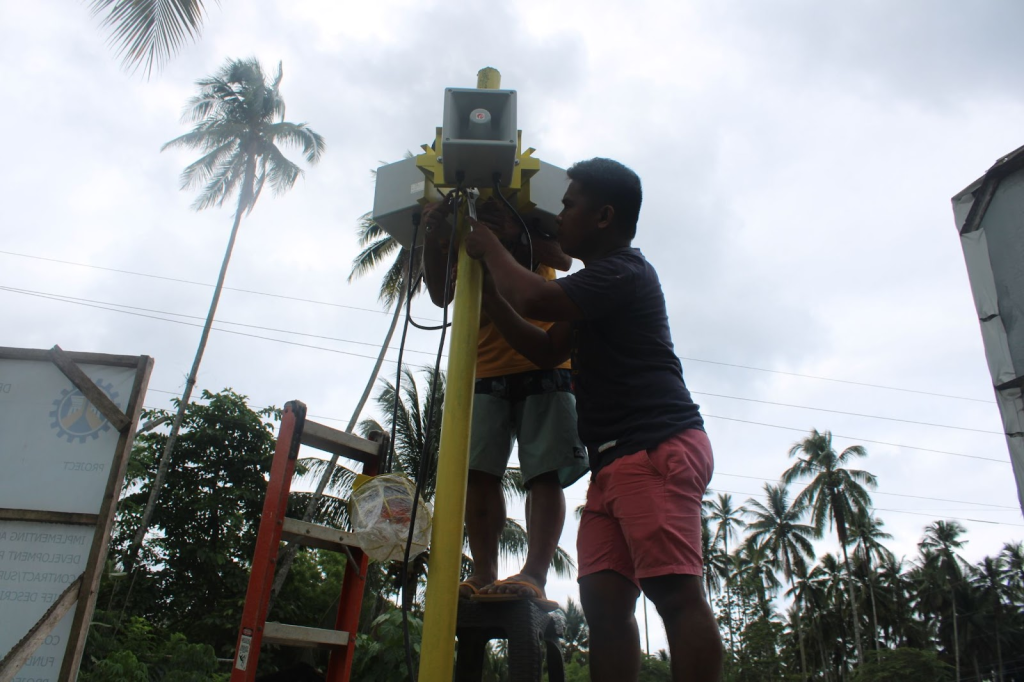Davao Oriental, Davao Region, Philippines –Residents of high-risk coastal communities in Caraga, Davao Oriental are now better prepared for potential tsunamis with the newly installed Tsunami Early Warning System (TEWS) by the Department of Science and Technology XI through Provincial Science and Technology Office (PSTO) – Davao Oriental, in collaboration with the DOST–Philippine Institute of Volcanology and Seismology (PHIVOLCS).
The TEWS is designed to provide real-time information and warning signals, significantly enhancing the community’s ability to respond swiftly to tsunami threats. This system aims to deliver a cost-efficient yet reliable tsunami forecast, which will aid in timely disaster responses. Moreover, it serves as a visualization, interpretation, and local tsunami emergency decision-support tool for the Local Government Unit of Caraga Davao Oriental, particularly in coastal barangays prone to tsunamis.
“We are committed to leveraging technology to enhance disaster preparedness in our Region. This equipment will empower our LGUs to make informed decisions during emergencies,” said Dr. Anthony Sales, DOST XI Regional Director.
In addition to the installation of the TEWS, DOST-PHIVOLCS conducted an Information, Education, and Communication campaign, a workshop on tsunami evacuation, and integrated the 83rd Community Tsunami Alerting Station into the TEWS.
A total of 39 participants from the coastal barangays of Santa Fe, San Jose, Poblacion, San Antonio, San Luis, Santiago, and Don Leon Balante attended the workshop. These barangays have been identified by the Municipal Disaster Risk Reduction Management Office as high-risk areas for tsunamis.
DOST Davao Oriental Provincial Director, Ms. Mirasol Domingo highlighted the importance of community engagement in disaster preparedness.
“Our goal is not only to install these systems but also to ensure that the community understands and is prepared to act on the information provided. The participation of local residents in the workshops is crucial for effective tsunami risk management,” Ms. Domingo said.
This initiative is part of the Community Empowerment through Science and Technology program, underscoring the commitment to leveraging scientific advancements for the safety and well-being of communities in disaster-prone areas.


